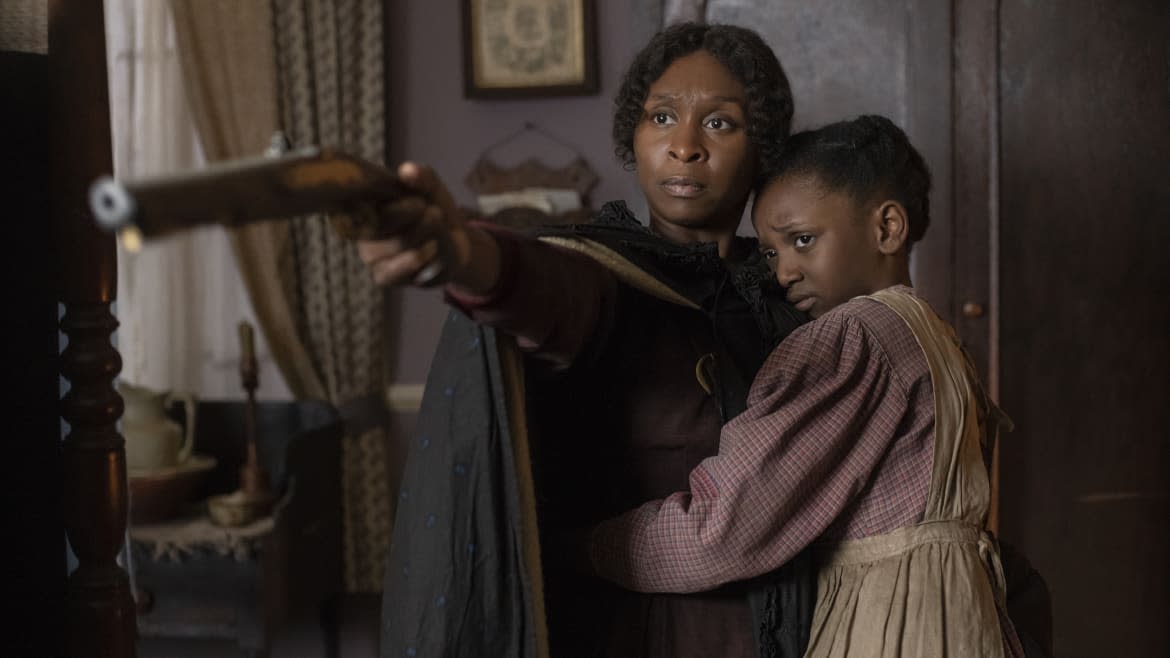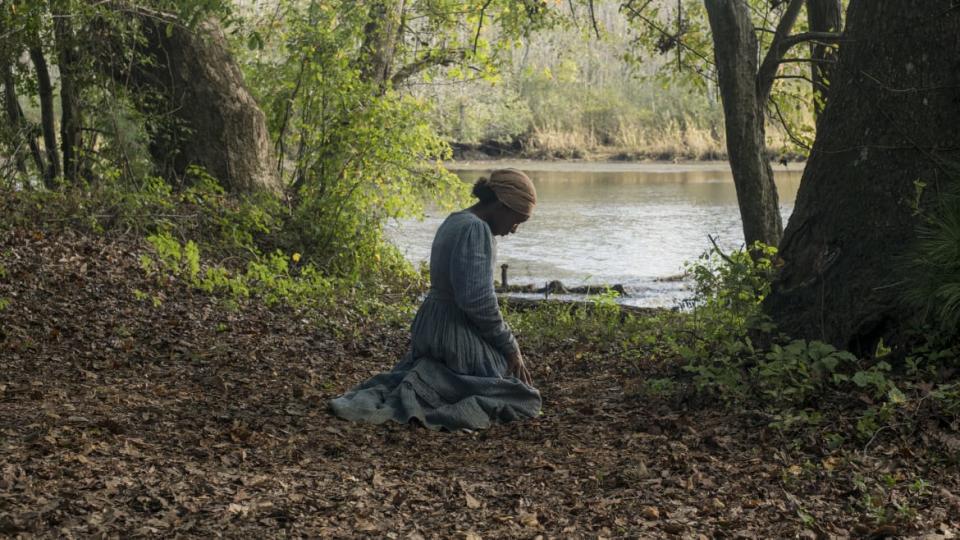‘Harriet’ Is the Powerful Rebuke of White Supremacy America Needs Right Now

Depicting the moral outrage of American slavery—a system so horrific, true, and still alive—presents a major challenge to filmmakers. How to tell the story of a catastrophe that was in no way an aberration, that reverberates again and again and that is to do with real people, not simple heroes and villains? How to tell a story of triumph without giving in to the myth of permanent progress or a biographical story without being seduced by the simplicity of the individual hero narrative? Harriet—the new biopic about Underground Railroad conductor, freedom fighter, and Union spy Harriet Tubman—succeeds because its director, Kasi Lemmons, brings experience, boldness, and imagination to telling the layered, intense, and often wildly differing personal and collective stories of black folk.
Lemmons’ first feature, Eve’s Bayou (1997), told a tale of loss of innocence, mysticism, fear, and betrayal, all within a black Creole family in Louisiana, apparently descended from a French aristocrat. It is a film that even in its tragic arc manages many tones and inflections, from wonder to desire to fury within that family. Harriet—which has the considerable burden of honoring but also imagining the life of one of America’s most radical and courageous activists, who was also, crucially, a black woman—is an extraordinary effort from Lemmons to infuse a historical tale with urgency and clarity while also communicating the very real terror and trouble of slavery and the moral conviction it took to fight it.
MAGA-era Kanye West Turns to God but Serves Himself in ‘Jesus Is King’
On the Harriet Tubman $20, Donald Trump Puts His (Racist) Money Where His (Racist) Mouth Is
Tubman was not a woman of moderation. She survived the worst of it and put her attention to what, to her, was the only possible question: How to free the ones still suffering today? In her portrayal of Tubman, Cynthia Erivo employs her gift for flourishes and subtleties alike and Lemmons’ direction works deftly with that range. And yes, Erivo literally sings—in the film, Harriet uses song to call out to her family to signal departure or arrival and to slaves to beckon them on radical, dangerous journeys to freedom. (Don’t let the trailer, which de-contextualizes Erivo’s most extravagant gestures, distort your idea of what the film achieves.)
Lemmons also understands the biopic film as a form, and gets on with it without giving in to it. The film stretches from Harriet’s appeal to her master for freedom, to her solo escape to Philadelphia, to her Underground Railroad trips between Maryland and Pennsylvania, Maryland and Canada, and more, stretching hundreds of miles on foot, carriage, and boat. We get significant biographical detail, carefully-paced plot, expert performances, but we are also asked to reckon with differences of ideas and conditions between black people: those who survived under slavery, were freed while their families stayed enslaved, stayed out of fear and loneliness, fought, escaped, or aided and abetted slave catchers for their own (comparatively minor) financial gain.
Lemmons makes a point of showing how, once free, Harriet, who couldn’t read and lived with a head injury that caused her dizziness and hallucinations, was a radical amongst even abolitionists. In the film, Harriet accuses Frederick Douglass of having long forgotten the daily and personal horrors of slavery (he escaped as a young man), and rallies her fellow abolitionists to feel her urgency even in their comforts. Lemmons also sees Harriet’s religious devoutness, as well as her premonitions, not as fervor, mysticism, or deliriousness, but as knowledge itself. God guides Harriet, and Harriet receives visions from God—these visions are not just her beliefs but her ideas, and allow her to imagine the freedom of black people beyond the prescriptions of law or state. Even today, this kind of knowledge and conviction is exceptionally rare, whether of religious or secular inspiration.

Cynthia Erivo as Harriet Tubman.
In 2020, Harriet Tubman was meant to replace Andrew Jackson on the twenty-dollar bill, but the Trump administration has put her anointing on hold indefinitely. I am of two minds about this: One says put Harriet on everything, everywhere. She is the American figure who must continue to guide us, to “make a place” for us, as she said in her dying words, and we must make one for her. The other balks at the idea of placing her likeness on currency: Tubman acted furiously against the distortions and cynicisms of economics. After returning to the South many times to free her family and strangers, she settled in Auburn, New York, where she established an infirmary that administered free health care, provided services for the elderly, and fought for women’s suffrage. She served as a soldier and spy for the Union in the Civil War, freeing hundreds more slaves, but was never fairly paid for her service, and struggled with money until the end of her life. The film unfortunately omits these difficulties—text indicates her late-life accomplishments and that she lived until 91, but not the struggles visited onto her by the state and its systems.
But Harriet Tubman is too good for our money, and in many ways, Harriet embodies this. In its fearless rhythms, portraits, and ideas, the film never comes off like an appeal for the kinds of physical honors that seem to immortalize the dead and appreciated. Rather, I left the film feeling that Harriet’s convictions must continue on, living through and not simply around us.
Got a tip? Send it to The Daily Beast here
Get our top stories in your inbox every day. Sign up now!
Daily Beast Membership: Beast Inside goes deeper on the stories that matter to you. Learn more.

